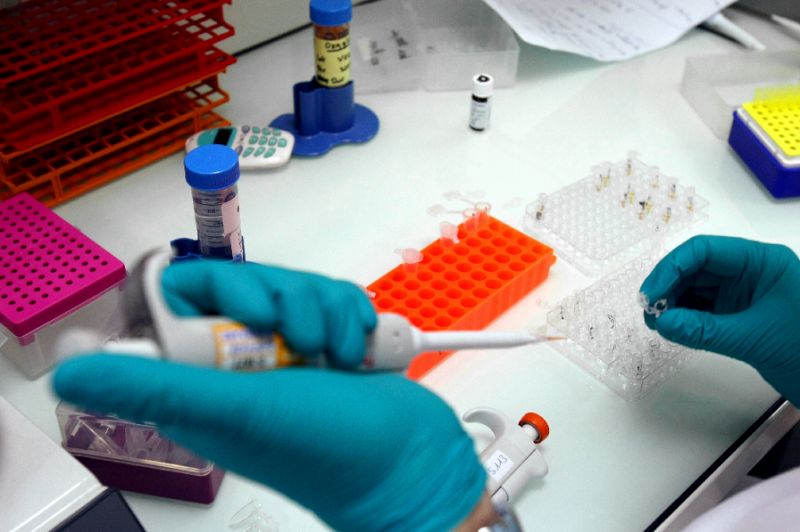New Delhi|Ekta
on 1st February Smt.Nirmala Sitharaman, Hon’ble Union Minister for Finance will present her first interim budget. In 2019 when Modi government came in to power for the second time in that year Piyush Goyal has presented the interim budget in on behalf of Arun Jaitely. The first interim budget of the Modi government was a populist one through which an attempt was made to cultivate a new beneficiary classes .The government is free to make new announcements in the interim budget.
The complete budget will be present when new government came into power in the month of July 24, till that time this interim budget will be follow for all finances. The new government is free to change the decisions of the interim budget while presenting the full budget.
Considering the up-coming elections there are so many expectations and recommendations from various sectors including health care from this interim budget, experts from medical technology to climate change and the hospitals sharing their views with ‘HealthLive’ on the same.
Sudarshan Jain, Secretary General, Indian Pharmaceutical Alliance:
Budget 2024 should accelerate the pace of life-sciences innovation & R&D -India has played a pivotal role in shaping global health outcomes by providing affordable quality-assured medicines. Today, the Indian pharmaceutical industry is at the cusp of change. The Indian pharma sector aims to achieve USD 120–130 by 2030 and USD 400-450 by 2047. To achieve this vision, the Union Budget 2024-25 should accelerate the pace of innovation and R&D. The announcement of the Promotion of Research & Innovation Program (PRIP) Scheme in 2023 was a positive step to spur innovation. Given the high risk, long gestation period and low success rate in research, there is a need for continuous investments. Therefore, the budget 2024-25 should outline conducive policies that provide benefits in terms of both direct and indirect taxes and also facilitate ease of doing business for the pharmacos.
The year 2024 is likely to witness the initial results of the various initiatives to augment India as a reliable supplier of medicines. Policy stability and continuity will be fundamental to propel the sector’s growth. India is poised to move to “Discover and Make in India” from “Make in India”, making India the custodian of healthcare of the world.

Himanshu Sikka, Project Director of SAMRIDH and Chief Strategy & Diversification Officer at IPE Global :
“In the face of climate change challenges, India, as a leader in the G20, showcases an exemplary commitment to innovative solutions, collaborative partnerships, and climate-smart healthcare. Amid the challenges, it is essential to acknowledge the strain on healthcare infrastructure and the healthcare sector’s 2% contribution to national carbon emissions, which is increasing at a rate of 5% annually. Given that 81% of emissions originate from the medical supply chain, a strategic response becomes imperative. To address this, a comprehensive strategy prioritizing climate-resilient health systems and sustainable practices is needed. Insufficient resources hinder integration efforts, necessitating an increase in the healthcare budget to combat climate-induced health impacts.
Therefore, increasing the healthcare Union Budget for 2024-2025 is essential, not only to enhance overall healthcare but also to strengthen the nation’s capacity to address the health impacts of climate change. Allocating resources to climate-smart initiatives in India can drive technological advancements, improve healthcare delivery, and ensure the urgently needed long-term environmental and public health sustainability. Moreover, it is important to unlock doors for greater private investments, utilizing innovative financing mechanisms like green bonds, climate funds, and blended finance. Allowing CSR funding for blended finance mechanisms can empower small healthcare enterprises to reach rural areas, while transitioning CSR funding to long-term systemic initiatives requires regulatory revisions. This approach can not only enhance healthcare delivery but also drive technological advancements, ensuring long-term environmental and public health sustainability in India.
Ameera Shah, Promoter and Managing Director, Metropolis Healthcare
Amid the fast-changing healthcare landscape and with COVID-19 once again in the spotlight, the upcoming Union Budget for 2024-2025 holds significant importance in strengthening India’s healthcare ecosystem. The forthcoming budget should serve as a driving force, channelling investments towards critical areas such as innovation, research and development, technology, upgrading healthcare infrastructure, and bolstering patient safety measures. Given the escalating burden of Non-Communicable Diseases (NCDs), we emphasize the necessity for regular and inclusive screening and diagnostics programmes along with more skilling courses for health professionals to attract as well as upskill talent in the diagnostic space. Additionally, we strongly advocate for the government’s consideration to implement a 0% GST on diagnostic services and facilitate refunds for GST paid on inputs. Recognizing that 60% of India’s diagnostics are reliant on imports, it becomes paramount for the government to rationalize import tariffs on healthcare products. Low-cost financing schemes can enable private players to upgrade and add diagnostic infrastructure in tier 2 and 3 geographies. These initiatives will not only enhance accessibility and affordability but also lay the groundwork for a robust healthcare ecosystem that can effectively combat present and future healthcare challenges.

Dr Ashutosh Raghuvanshi, MD and CEO, Fortis Healthcare & President, NATHEALTH
As India navigates the critical path of healthcare reform, NATHEALTH has presented a comprehensive set of budget recommendations to the government, targeting transformative changes. Our proposals emphasize the need to bridge regional healthcare disparities through inclusive and innovative strategies. We are advocating for an increase in healthcare spending to 2.5% of GDP and the rationalisation of the GST framework. Additionally, we aim to enhance the medical value travel segment by addressing the MAT credit issue and strengthening the healthcare value chain, which is essential for driving economic growth and creating new job opportunities. A key focus should be on building local capabilities to deliver healthcare services even in the most remote regions, alongside the localization of the healthcare value chain. Equally important is the capacity building and training of healthcare professionals, which is crucial to cater to our nation’s increasing healthcare needs. These measures are fundamental to developing a resilient and efficient healthcare system in India.










